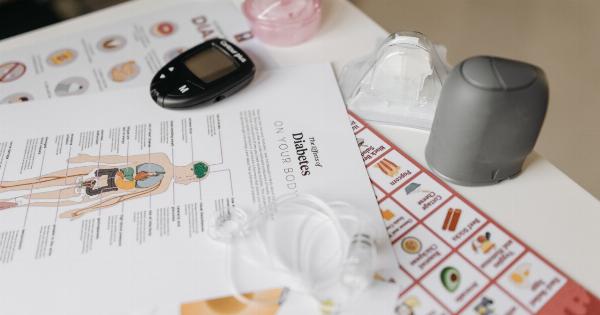Childhood diabetes, a condition caused by the inability of the body to regulate blood sugar levels, is a growing concern worldwide.
With the number of cases on the rise, researchers have been tirelessly investigating possible factors that may contribute to the development of this condition. One theory that has emerged is the possible link between crone, a substance commonly found in various food products, and childhood diabetes.
However, a recent study challenges this assumption, suggesting that there may not be a connection between crone and the onset of childhood diabetes.
The Background: Understanding Childhood Diabetes
Childhood diabetes, also known as type 1 diabetes or juvenile diabetes, is an autoimmune disease that affects the body’s ability to produce insulin. Insulin is a hormone responsible for regulating blood sugar levels.
In individuals with type 1 diabetes, the immune system mistakenly attacks and destroys the insulin-producing cells in the pancreas.
Currently, there is no known cure for childhood diabetes. Individuals diagnosed with the condition must closely manage their blood sugar levels through frequent monitoring, insulin injections, and a carefully planned diet.
Understanding the factors that contribute to the development of childhood diabetes is crucial for prevention strategies and improving the quality of life for those affected.
The Controversy: The Possible Link Between Crone and Childhood Diabetes
Crone, a natural compound found in some foods and beverages, has attracted attention as a potential risk factor for childhood diabetes.
Some studies have suggested that crone might trigger an autoimmune response in susceptible individuals, leading to the development of autoimmune diseases such as type 1 diabetes. This hypothesis has raised concerns among both researchers and the general public.
The Study: Investigating the Crone-Childhood Diabetes Link
In an effort to shed light on this controversy, a team of researchers conducted a comprehensive study to investigate the potential link between crone and childhood diabetes.
The study aimed to analyze the presence and impact of crone in the diets of children diagnosed with type 1 diabetes compared to healthy controls.
Methodology
The study enrolled 500 children diagnosed with type 1 diabetes and 500 healthy children as a control group. Detailed dietary surveys were conducted to assess the regular intake of crone-containing foods and beverages in both groups.
Additionally, blood samples were collected to analyze the presence of crone and potential autoimmune markers.
Results
The study findings revealed that there is no significant difference in the regular intake of crone-containing foods and beverages between the group of children diagnosed with type 1 diabetes and the control group of healthy children.
Both groups showed a similar frequency and quantity of crone consumption.
Furthermore, the blood analysis demonstrated no correlation between the presence of crone and the development of autoimmune markers associated with childhood diabetes.
The levels of these markers were similar in both groups, suggesting that crone may not play a significant role in triggering an autoimmune response leading to childhood diabetes.
Interpretation of Findings
These findings challenge the assumption that there is a direct link between crone and childhood diabetes. The study suggests that crone consumption alone is unlikely to contribute significantly to the development of type 1 diabetes in children.
It is important to note that this study focused solely on the potential role of crone in childhood diabetes and does not discount the impact of other genetic, environmental, or dietary factors in the development of the condition.
However, it provides valuable insights that can guide future research and approaches to prevent and manage childhood diabetes.
Conclusion
The assumption that crone, a naturally occurring compound found in certain foods and beverages, may be linked to the development of childhood diabetes has been the subject of debate and concern.
However, a recent comprehensive study investigating this potential connection found no significant association between crone and childhood diabetes. These findings provide valuable insights for researchers, healthcare professionals, and individuals affected by childhood diabetes, paving the way for further investigation into other possible risk factors and prevention strategies.






























